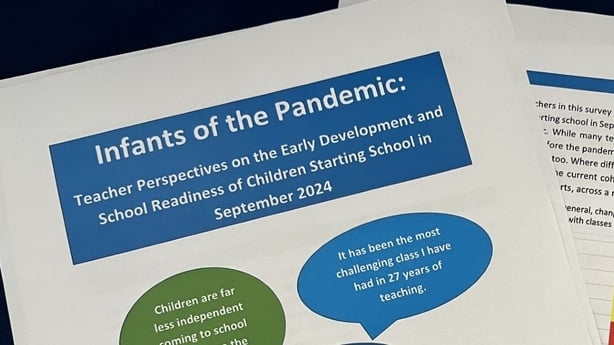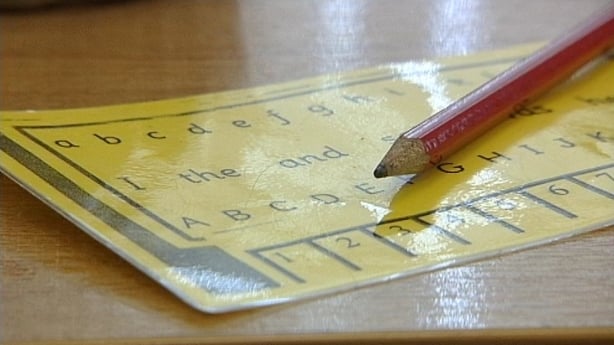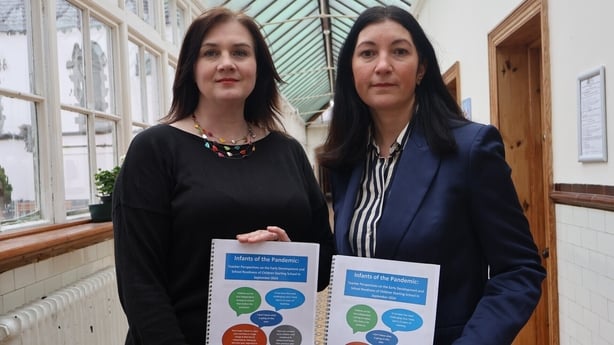Children who began school this year may be encountering more difficulties and be less prepared compared to those born before the Covid-19 pandemic, the findings of a study from Mary Immaculate College suggest.
The study focused on the experience of just over 100 teachers of junior infant classes, 80% of whom stated a belief they have more pupils now with emotional and behavioural issues compared to pre-pandemic times.
Teachers' perceptions were gathered in an online survey which aimed to find out whether experiencing the pandemic during infancy might have influenced later development when starting school.
The teachers were asked questions about how their current class of junior infant children, aged 4-6 years, were faring and how they compared with previous classes they taught before the pandemic.

These children spent the early months of their lives in the Covid-19 pandemic, with the resulting lockdowns and social restrictions.
'Infants of the Pandemic: Teacher Perspectives on the Early Development and School Readiness of Children Starting School in September 2024' found that many of the teachers felt there may be differences in the skills and capabilities of children starting school in September 2024 compared with those who started school before the pandemic.
The report found: "While many teachers indicated similarities in various skills between classes they taught before the pandemic and their current junior infant class, many teachers highlighted differences too.
"Where differences were indicated they tended to be negative, suggesting that many of the current cohort of junior infants were less ‘ready’ overall to start school than previous cohorts."
In relation to social and emotional issues, teachers described this academic year’s junior infants as having more separation anxiety from their parents, more anxiety in general and less emotional regulation.

Around 42% of teachers also highlighted issues relating to more children starting school without being able to manage personal care.
One teacher noted that "children are far less independent coming to school than before the pandemic".
Teachers also noted considerable speech, language and communication difficulties with the children, as well as some difficulties with fine motor control.
According to one teacher: "It has been the most challenging class I have had in 27 years of teaching."

The report notes, however, "some teachers have reported no change in the number of children experiencing difficulties, compared with before the pandemic, while a minority have also reported positive changes".
It also said that while the overall findings indicate the current cohort of junior infants were less "ready" to start school than previous cohorts, "the exact cause cannot be pinpointed at this time".
"It may be that the changes in social contacts or family life in the early months of children’s lives, and since the pandemic, have contributed to the situation," it said.
"Potentially, missed or delayed developmental checks could also mean that issues were not detected as early as they might have been," it added.
The study's authors, Dr Suzanne Egan and Dr Jennifer Pope, said more research is needed to fully understand the nature and extent of the issues and to determine possible causes.
Five years on from the closure of schools as a result of the pandemic the authors conclude: "The findings in this study highlight the potential long lasting and wide-ranging effects of the pandemic for young children.
"Without early interventions and supports, gaps can widen and developmental delays can worsen over the course of childhood.
"The teachers in this study have expressed significant concerns and challenges that require further investigation, investment and supports."







